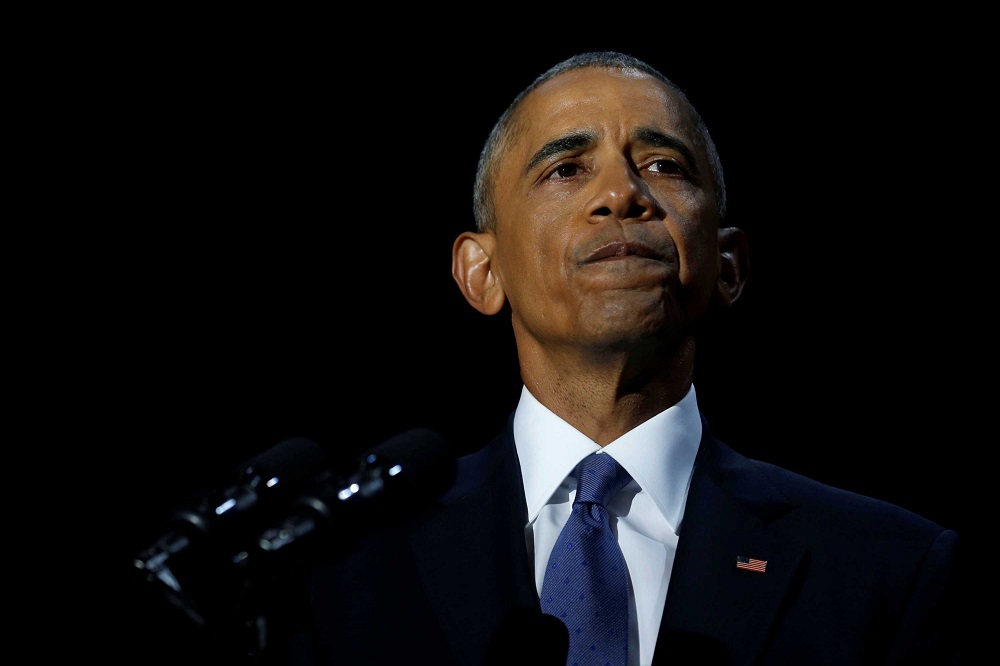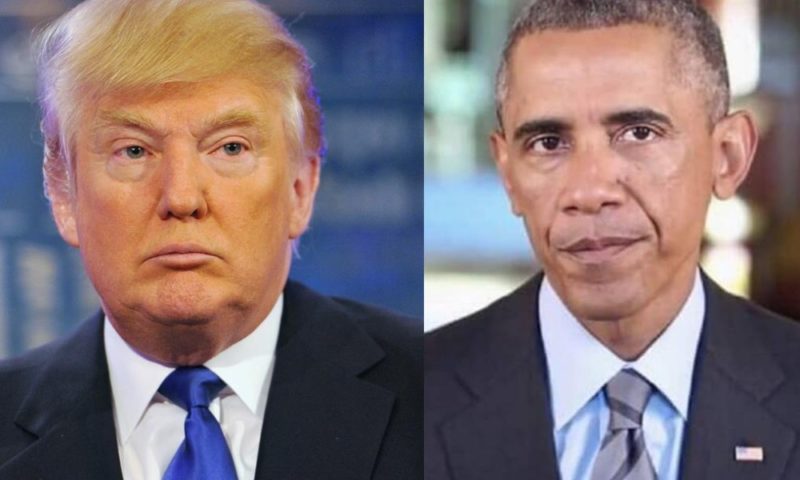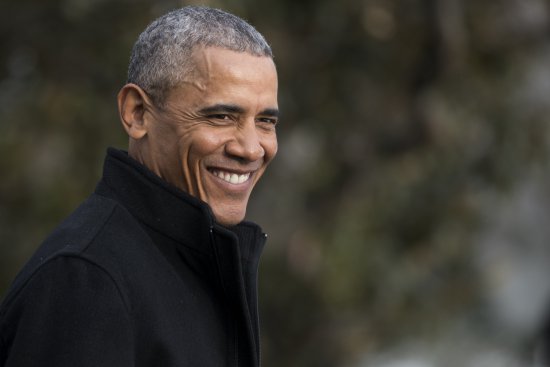

President Barack Obama gave an emotional and wide-ranging final address on Tuesday as he outlined his thoughts on the greatest threats to our democracy while also reminding Americas of both his achievements and challenges during his eight years in office.
While touching on many of his most proud achievements, one couldn’t help wondering just how long those would be kept once President-elect Donald Trump takes office on Jan 20.
This was easily one of the most memorable final speeches from a president in recent history, and it couldn’t have come at a more confusing time in our countries history. Obama is currently receiving his highest approval ratings in six years while Trump is besieged with unflattering press and his frequent Twitter outbursts have caused concern among Republicans and his most staunch supporters.
Obama has bid farewell to the nation in an emotional speech that sought to comfort a country on edge over rapid economic changes, persistent security threats and the election of Donald Trump.
Forceful at times and tearful at others, Obama’s valedictory speech in his hometown of Chicago was a public meditation on the many trials the U.S. faces as Obama takes his exit. For the challenges that are new, Obama offered his vision for how to surmount them, and for the persistent problems he was unable to overcome, he offered optimism that others, eventually, will.
“Yes, our progress has been uneven,” he told a crowd of some 18,000. “The work of democracy has always been hard, contentious and sometimes bloody. For every two steps forward, it often feels we take one step back.”
Yet Obama argued his faith in America had only been strengthened by what he’s witnessed the past eight years, and he declared: “The future should be ours.”
Brushing away tears with a handkerchief, Obama paid tribute to the sacrifices made by his wife – and by his daughters, who were young girls when they entered the big white home on Pennsylvania Avenue and leave as young women. He praised first lady Michelle Obama for taking on her role “with grace and grit and style and good humor” and for making the White House “a place that belongs to everybody.”
Soon Obama and his family will exit the national stage, to be replaced by Trump, a man Obama had stridently argued poses a dire threat to the nation’s future. His near-apocalyptic warnings throughout the campaign have cast a continuing shadow over his post-election efforts to reassure Americans anxious about the future.
Indeed, much of what Obama accomplished during his two terms – from health care overhaul and environmental regulations to his nuclear deal with Iran – could potentially be upended by Trump. So even as Obama seeks to define what his presidency meant for America, his legacy remains in question.
Even as Obama said farewell – in a televised speech of just under an hour – the anxiety felt by many Americans about the future was palpable, and not only in the Chicago convention center where he stood in front of a giant presidential seal. The political world was reeling from new revelations about an unsubstantiated report that Russia had compromising personal and financial information about Trump.
Obama made only passing reference to the next president. When he noted he would soon be replaced by the Republican, his crowd began to boo.
“No, no, no, no, no,” Obama said. One of the nation’s great strengths, he said, “is the peaceful transfer of power from one president to the next.”
Earlier, as the crowd of thousands chanted, “Four more years,” he simply smiled and said, “I can’t do that.”
Still, Obama offered what seemed like a point-by-point rebuttal of Trump’s vision for America.
He pushed back on the isolationist sentiments inherent in Trump’s trade policies. He decried discrimination against Muslim Americans and lamented politicians who question climate change. And he warned about the pernicious threat to U.S. democracy posed by purposely deceptive fake “news” and a growing tendency of Americans to listen only to information that confirms what they already believe.
Get out of your “bubbles,” said the politician who rose to a prominence with a message of unity, challenging divisions of red states and blue states. Obama also revived a call to activism that marked his first presidential campaign, telling Americans to stay engaged in politics.
“If you’re tired of arguing with strangers on the internet,” Obama said pointedly, “try to talk with one in real life. ”
With Democrats still straining to make sense of their devastating election losses, Obama tried to offer a path forward. He called for empathy for the struggles of all Americans – from minorities, refugees and transgender people to middle-aged white men whose sense of economic security has been upended in recent years.
Paying tribute to his place as America’s first black president, Obama acknowledged there were hopes after his 2008 election for a post-racial America.
“Such a vision, however well-intended, was never realistic,” Obama said, though he insisted race relations are better now than a few decades ago.
The former community organizer closed out his speech by reviving his campaign chant, “Yes we can.” To that, he added for the first time, “Yes we did.”
He staunchly defended the power of activists to make a difference – the driving factor behind Obama’s optimism in the face of so much anxiety, he said. Though the coalition of young Americans and minorities who twice got Obama elected wasn’t enough to elect Democrat Hillary Clinton to replace him, Obama suggested their day was still ahead.
“You’ll soon outnumber any of us, and I believe as a result that the future is in good hands,” he said.
Steeped in nostalgia, Obama’s return to Chicago was less a triumphant homecoming than a bittersweet reunion bringing together loyalists and staffers, many of whom have long since left Obama’s service, moved on to new careers and started families. They came from across the country – some on Air Force One, others on their own – to be present for the last major moment of Obama’s presidency.
Unexpectedly absent was Obama’s younger daughter, Sasha, who had been expected to join sister Malia at the speech. The White House said Sasha stayed in Washington due to a school exam Wednesday morning.
After returning to Washington, Obama will have less than two weeks before he accompanies Trump in the presidential limousine to the Capitol for the new president’s swearing-in. After nearly a decade in the spotlight, Obama will become a private citizen, an elder statesman at 55. He plans to take some time off, write a book – and immerse himself in a Democratic redistricting campaign.
 Biggest Takeaways from Barack Obama’s Final Address
Biggest Takeaways from Barack Obama’s Final Address
1) Obama plans to defend his accomplishments
Some of the president’s biggest applause lines came when he doubled down his legislative and diplomatic victories (from his stewardship of the economy during the Great Recession to his outreach to Cuba and Iran), almost daring his successors to undermine them at their own risk.
For instance, he continued to champion his imperiled Affordable Care Act (which has by most calculations brought the U.S. uninsured rate to a historic low) and argued that if his anyone ever crafted a plan that was more cost effective and provided health care to more people he himself would endorse it.
2) Obama is committed to taking down Trump-ism, if not Trump himself
The president’s few words specifically mentioning his successor were gracious (even amid boos from the crowd in Chicago), but the bulk of his oratory read as a defiant rebuke of the controversial political ideology that the president-elect espoused both during and since the general election.
Obama made it clear that he will not tolerate discrimination against Muslims or undocumented immigrants, that he will stand in opposition to any efforts to divide Americans along the lines of race, gender, sexuality or economic class, and he defended those who have made their dissent known through peaceful protest, arguing “they’re not demanding special treatment, but equal treatment.”
3) Obama sees economic inequality, racial antagonism and willful ignorance as major threats to democracy
Although the thrust of Obama’s oratory was largely optimistic, he did take great pains to outline what he sees as the most imminent threats to our country’s ability to unify. In some cases, when it came to addressing the gap between the rich and poor and racial unrest, he argued the solutions go hand in hand.
“After all, if every economic issue is framed as a struggle between a hard-working white middle class and undeserving minorities, then workers of all shades will be left fighting for scraps while the wealthy withdraw further into their private enclaves,” he said. The president went on to say that Americans on both sides of the aisle are doing the country a disservice by subscribing to only the facts they choose to believe.
4) Obama warned that we only embolden our enemies by turning on each other
While Obama paid homage to the nation’s military, diplomats, and law enforcement for helping to prevent any foreign attacks on U.S. soil during his tenure, he admitted that there is a lot more work to do, particularly within the country where he said: “democracy can buckle when it gives into fear.”
Without mentioning Trump by name, the president took several not-very-veiled swipes at some of his most controversial rhetoric about international policy, and said “we cannot withdraw from global fights — to expand democracy and human rights, women’s rights, and LGBT rights — no matter how imperfect our efforts, no matter how expedient ignoring such values may seem.”
5) Obama will push for a renewed commitment to public service and lawmakers that reflect the country
The president got granular about the harm that redistricting, and the suppression of voting rights has done to the American people’s faith in their political process and ability to effect change. Obama hinted at him taking a personal role (already reported on last fall) in reversing that trend but also eagerly encouraged his supporters to seek office themselves (echoing a call Sen. Bernie Sanders made to his dispirited followers last fall) and made the argument that the process of serving had enriched him.
“Show up. Dive in. Persevere. Sometimes you’ll win. Sometimes you’ll lose,” said Obama. “Presuming a reservoir of goodness in others can be a risk, and there will be times when the process disappoints you. But for those of us fortunate enough to have been a part of this work, to see it up close, let me tell you, it can energize and inspire. And more often than not, your faith in America — and in Americans — will be confirmed. Mine sure has been.”
6) Obama thinks we all need to put our phones down and talk to one another
In one of the few and biggest laugh lines of the night, President Obama suggested, “If you’re tired of arguing with strangers on the Internet, try to talk with one in real life.” It was part of a larger case he made throughout the speech, which touched on themes he has returned to again and again as both a candidate and president, about the things that unite Americans more than divides them.
The president lamented the way in which Americans now self-segregate even in terms of the news they consume and don’t spend enough time heeding the Atticus Finch character’s advice from “To Kill a Mockingbird”: “You never really understand a person until you consider things from his point of view … until you climb into his skin and walk around in it.”
7) Obama believes that the millennial generation will preserve and protect his values
Still, Obama sees a lot to be optimistic about in one of his most devoted bloc of supporters — the youth. “This generation coming up — unselfish, altruistic, creative, patriotic — I’ve seen you in every corner of the country,” the president said. “You believe in a fair, just, inclusive America; you know that constant change has been America’s hallmark, something not to fear but to embrace, and you are willing to carry this hard work of democracy forward. You’ll soon outnumber any of us, and I believe as a result that the future is in good hands.
8) Obama’s isn’t afraid to show his emotions when all is said and done
A tearful President Obama brought the house down with his heartfelt tributes to his staff, Vice President Joe Biden (who he called a “brother), wife first lady Michelle Obama (whose first name alone brought along a standing ovation) and his now teenage daughter Malia and Sasha. Despite clearly taking great pride in his formidable record as president, Obama calling being their father the “proudest” achievement of his life. And with a playful callback to his 2008 campaign slogan “Yes We Can,” Obama then descended into the crowd personally greeting and thanking the throngs in attendance. Although he has no more campaigns to run, he pledged to be “right there with you” as a private citizen.



 Biggest Takeaways from Barack Obama’s Final Address
Biggest Takeaways from Barack Obama’s Final Address